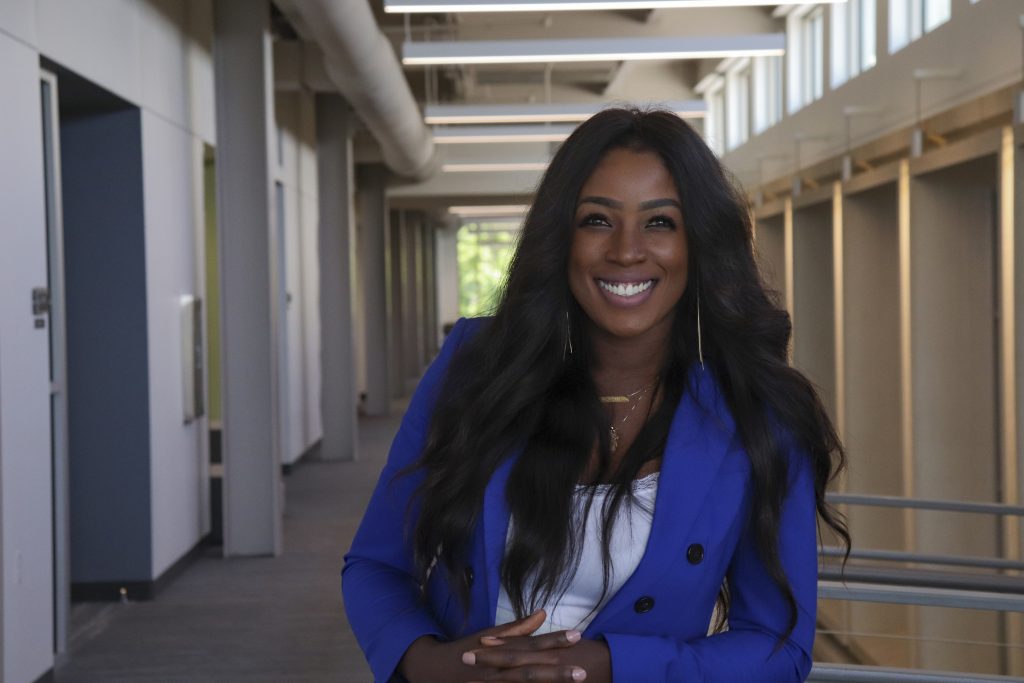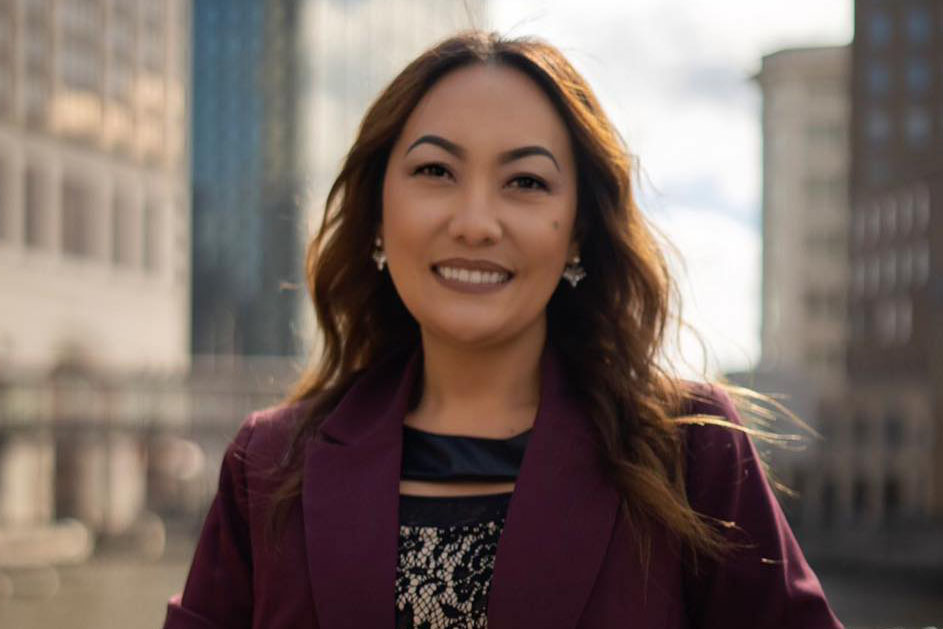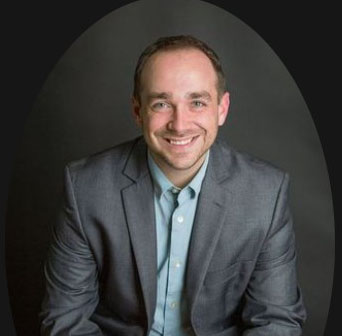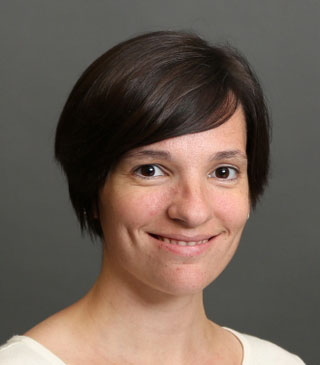Briggs committed to increasing diversity of Wisconsin’s legal profession
By: Michaela Paukner, [email protected]//February 22, 2021//
Briggs committed to increasing diversity of Wisconsin’s legal profession
By: Michaela Paukner, [email protected]//February 22, 2021//
Dr. Jeneise Briggs, the State Bar of Wisconsin’s diversity and inclusion specialist, is passionate about doing the work to make the legal community more welcoming for all.
“When you think of diversity, a lot of people think that it’s just race, but there’s so many different dimensions to it,” Briggs said.
Since joining the State Bar in August, she’s been building and strengthening relationships that will help the organization reach its diversity and inclusion goals. Briggs is full of ideas about how different groups around the state and the country can combine resources to increase representation in the law and ensure access to justice for citizens.
“We’re listening to our communities that we’re serving,” Briggs said. “I can’t wait for this pandemic to be over, so I can start going out into communities and see what people need and how I can help.”
Briggs employed a similar strategy with success at Marian University in Fond du Lac as senior assistant to the president for diversity and inclusion. She established the university’s diversity office and increased retention among students from marginalized communities.
At the State Bar, she’s excited to continue her work with students and cultivate the organization’s already-established commitment to diversity.
“I really loved the fact that I would still be working with students,” Briggs said, “as well as helping with growth — making sure that we’re creating a welcoming and inclusive environment.”
Briggs talked with the Wisconsin Law Journal about her plans to build on the State Bar’s ongoing diversity and inclusion initiatives.
Wisconsin Law Journal: What have you been working on in your first six months with the State Bar?
Dr. Jeneise Briggs: One of my approaches when I start with an organization is to learn as much as I can from the rich institutional knowledge that existed before I started, so meeting with people, learning their history, what they have done and what areas they see my skill sets helping them to continue advancing the work.
The legal field is very new to me, but the challenges and opportunities when it comes to the realm of diversity, equity, inclusion and access are really the same, such as lack of representation. We know that women and minority attorneys have not been well represented in the legal profession, and so (I’ve been) trying to see what initiatives exist in challenging the status quo.
I’m reaching out to the affinity groups to see how can we leverage resources, how can we help each other as we look at some of these bigger challenges of representation in the legal field. It’s continuing those conversations, being in those spaces and offering my insight from an inclusive lens on how we can strengthen those areas and opportunities that exist for us and even branch into other areas. I have been looking outside of Wisconsin, so I’ve sat in on a few meetings with diversity directors in other states to see best practices in other organizations around inclusivity.
It’s looking at what we already have and how can we strengthen it as we move forward. My conversation and communication with the leadership has been great because this is a strategic priority for the State Bar in creating a legal environment from an inclusive lens where there’s mutual respect.
WLJ: How has the legal community responded to your conversations about advancing the State Bar’s diversity and inclusion goals?
Briggs: One of the things that my mentor for my dissertation has always said is you want to identify the champions for diversity. If you (want to) have a successful idea or policy or program, you want to go for those people who are on board.
To be honest, the conversations with the affinity bars have been great. They are committed to this work. The conversations with the directors of diversity outside of Wisconsin — minded, we all have our various different challenges, but we’re now looking at how can we leverage our resources as a group. We now have this network (to) start sharing those resources because it doesn’t make sense to reinvent the wheel if there are best practices out there that have been tested and you have the success rate behind it. Those conversations have been going great. I’ve only been here six months, but I am a firm believer in establishing authentic relationships with the various stakeholders that you’re going to be working with.
WLJ: How do Wisconsin’s law schools play a role in making our state’s legal system more inclusive?
Briggs: I am big on pipeline. I believe in grow your own — not just for the State Bar, but the legal system in Wisconsin as a whole. There’s a challenge in retaining diverse lawyers in the state, and so if we can reach students early, I think that’s one of the biggest opportunities right now as we think long term on how we want the legal profession to be a reflection of the society that we’re serving. The data shows that by 2026, 46% of students leaving high school are going to be diverse. By 2060, America is not going to be majority minority — it’s going to be like a rainbow. It’s going to be a melting pot of diversity, so how can we position ourselves for what is to come?
Representation matters, it does, and kids are so vulnerable. They’re like sponges. Once they start to see a reflection of themselves in leadership positions and possibly mentorship opportunities to help build extrinsic motivation for them, they’re going to be future leaders. I am a firm believer in reaching the kids. If that means me coordinating all the work, I’ll do it.
WLJ: What do you think it’s going to take to reach that goal of having a legal profession that reflects society as a whole?
Briggs: The history of the legal field in the United States, especially in a leadership position, has always been white men. Making sure that there are opportunities for women, there are opportunities for minorities, opportunities for veterans, all these different marginalized groups now have an opportunity. With the judicial bench being more diverse, with State Bar leadership being diverse, these leaders have an opportunity now to eliminate barriers.
Lawyers, whether they’re in large corporate corporate firms or the government entities or private firms, once they become diverse, then we’re heading in the right direction when it comes down to access, fairness and justice for all. It’s a lofty goal, but it can be done. We’re already doing it.
This process is not going to happen overnight. Even if you don’t identify as somebody from a marginalized identity, we can look at organizational culture and (ask) what are some of the competencies or tools or resources that you need to have these cross-cultural dialogues? There are different opportunities for us to thrive and grow as an individual, as well as an organization and society as a whole. It’s embracing these differences and really allowing people to be their authentic selves. We’re making some headway where that is concerned, and it’s going to take those ongoing dialogues.
Legal News
- Wisconsin attorney loses law license, ordered to pay $16K fine
- Former Wisconsin police officer charged with 5 bestiality felony counts
- Judge reject’s Trump’s bid for a new trial in $83.3 million E. Jean Carroll defamation case
- Dozens of deaths reveal risks of injecting sedatives into people restrained by police
- The Latest: Supreme Court arguments conclude in Trump immunity case
- Net neutrality restored as FCC votes to regulate internet providers
- Wisconsin Attorney General asks Congress to expand reproductive health services
- Attorney General Kaul releases update at three-year anniversary of clergy and faith leader abuse initiative
- State Bar leaders remain deeply divided over special purpose trust
- Former Wisconsin college chancellor fired over porn career is fighting to keep his faculty post
- Pecker says he pledged to be Trump campaign’s ‘eyes and ears’ during 2016 race
- A conservative quest to limit diversity programs gains momentum in states
WLJ People
- Power 30 Personal Injury Attorneys – Russell Nicolet
- Power 30 Personal Injury Attorneys – Benjamin Nicolet
- Power 30 Personal Injury Attorneys – Dustin T. Woehl
- Power 30 Personal Injury Attorneys – Katherine Metzger
- Power 30 Personal Injury Attorneys – Joseph Ryan
- Power 30 Personal Injury Attorneys – James M. Ryan
- Power 30 Personal Injury Attorneys – Dana Wachs
- Power 30 Personal Injury Attorneys – Mark L. Thomsen
- Power 30 Personal Injury Attorneys – Matthew Lein
- Power 30 Personal Injury Attorneys – Jeffrey A. Pitman
- Power 30 Personal Injury Attorneys – William Pemberton
- Power 30 Personal Injury Attorneys – Howard S. Sicula













